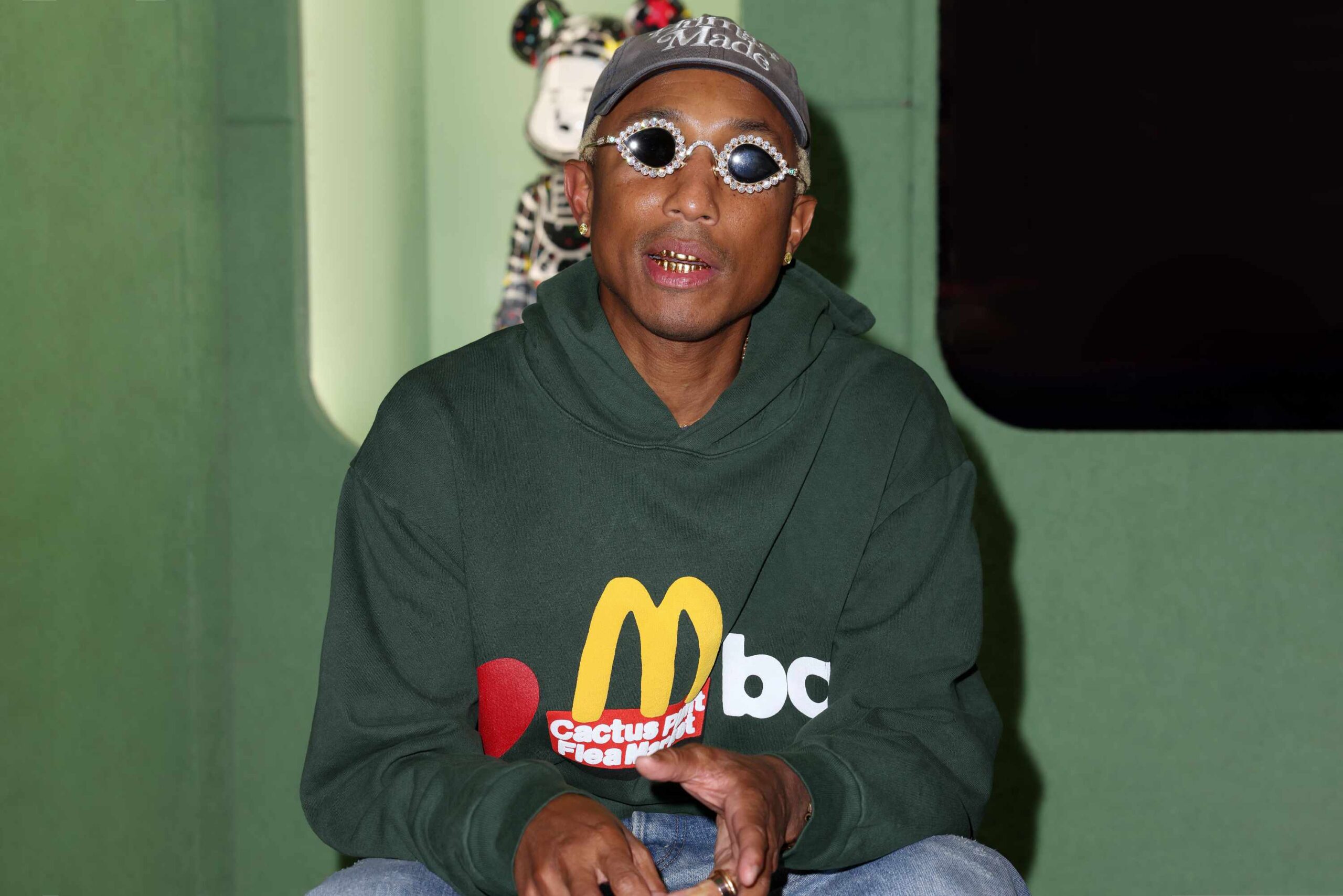
Cactus Plant Flea Market breaks all of streetwear’s rules and only ends up better off for it. This business’ conventions dictate that successful brands are austere, reserved and, above all, exclusive, collaborations modestly folded in with seasonal collections.
Not Cactus Plant Flea Market. It’s somehow everywhere and nowhere, omnipresent and obscure, walking an impossible balance.
On June 26, for instance, Cactus Plant Flea Market quietly teased a forthcoming collaboration with family-friendly animated flick Despicable Me 4, a collection planned for release across America and likely comprising ultra-approachable logo layers. Simple stuff anyone could wear.
Earlier in the week, models clutched accessories co-created by Cactus Plant at Junya Watanabe’s collaboration-stacked Spring/Summer 2025 menswear show. These patterned bags, shown alongside Versace scarves, are guaranteed to be expensive and scarce.
In the span of, really, only a few days, CPFM made tangible its unique positioning.
This is a label that can simultaneously partner with a trend-setting designer brand and a mass-market movie without ever risking the cultural cool that’s all-important to a clothing label that trades primarily on brand recognition and goodwill.
Behold the fascinating dichotomy at play with CPFM and only with CPFM.
Generally speaking, there are two types of streetwear brands: The ones who frequently release mediocre merch in collaboration with a well-paying partner despite dwindling, if any, relevance (I won’t name names) and the ones whose ultra-specific, infrequent partnerships become the stuff of collector legend.
Obvious examples of the latter are Supreme and Stüssy, though there are some who can mix and match, like Brain Dead — capable of both resalable sneakers and merchification — and Online Ceramics, which functions more like Cactus Plant Flea Market for an older, beardier, A24-watching set. But CPFM still stands alone.
Founded by former Pharrell assistant Cynthia Lu in 2015, CPFM itself is barely visible despite its conspicuous reach.
It sparingly drops its in-house creations by way of a bare-bones website and extremely vacant Instagram page, encouraging partners and admirers to handle promotion.
And handle it they do: Be it Erewhon smoothies, a tête-à-tête with NIGO’s Human Made brand, Marc Jacobs Disney swag or tour merch for artists as disparate as Playboi Carti and comedian Tim Robinson, Cactus Plant Flea Market’s much-imitated design lingo is ubiquitous.
No other streetwear-leaning brand at this scale or otherwise can so cannily and so frequently shift from McDonald’s meal to collaborative Nike sneakers to one-off pop-up merch without draining its limited, coveted, all-important supply of earned clout.
A streetwear brand must be seen but only barely heard, you see — overextension and hypervisibility cut into that sense of exclusivity, no matter how limited the product.
Part of what makes it all work is CPFM’s dedication to shunning the spotlight. Because Lu exists with nary a digital footprint and CPFM is only barely more overt, oversaturation has never set in.
Each outing, even the ones most corporate, feels like a surprise to be uncovered by true believers craving another glimpse of CPFM’s distinct hippy-trippy worldview. Bigger budgets only enhance, rather than cheapen, the experience.
CPFM x McDonald’s, for instance, rolled out by way of bespoke mascot costumes and Ronald McDonald sculptures, culminating in CPFM-ified mascot toys that tapped into a Happy Meal-collecting impulse hardwired into every former child.
CPFM’s Despicable Me 4 team-up, meanwhile, is realized with warped minion plushes, vending machines, and stylized wheatpaste posters displayed across several American cities. They’re there but only if you look.
The secret is holistic collaboration that always scans as authentic. CPFM doesn’t play by anyone else’s rules: It’s the partners seeking a CPFM collab who must instead play ball.
Lu might’ve learned this auteur-ish cue from her former boss and most famous backer, Pharrell, a veteran jack of all trades (he also, again, oversaw the score and soundtrack for the new Despicable Me movie).
I’d also posit that despite CPFM’s many far-reaching link-ups, it’s never really worked with anyone truly wack.
Denim Tears, Nike, Stüssy, Travis Scott, COMME des GARÇONS CDG, Steve Lacy, Kerwin Frost: this is an objectively solid resume. And even the more outré stuff, the McDonald’s and Erewhon, was all safely within the border of street culture.
Plus, CPFM still feels small, by comparison to its popular peers. Even its larger offerings, produced with international giants like McDonald’s, retain the intimacy that makes its flock feel like they’re following a DIY savant on the rise.
Despicable Me is the first CPFM partnership that feels a little left-field.
But, again, CPFM bends the subject to its will. The cartoonish characters, the kid-ish quirk, the goofy colors: It all fits within the CPFM world.
And, in the big picture, this is a sign of things to come. CPFM has clearly earned enough cultural goodwill that it can legitimize basically anything. What’s next?
